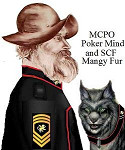first of all, if I would think D.W is writing racist or homophobe, I wouldn't even read the books.
But I read quite all.
And why? Because the plot is very interesting, not only the military side, I like very much the poltical side. The SL big, fat and arrogant frozen in its poltical system. with
Ok?
Now to my critc:
The most of you writing here are probably americans, right? Can you imagine, that looking from outside, you have another view. I learned this in the eighties when I spent a year in the US for working (setting up grinders).
Suddenly i realized, that I had a different, far more critical, view on anything what happened in Germany (my country).
And for me and my view, it is written more or less from an american point of view.
Of course - D.W is an american.
Edit:
SaganamiFan brought pretty it close to the point:
And to everyone, my comment wasn't meant as a critcism of David's writing or that I miss me some sexy gay action in the novels. Not at all. Hutch's comment really gets closest to what I actually meant; David has created a complex vision of the future that examines social shifts and changes in a diversified mega-society, and I'm pretty sure LGBT people (I don't consider equal rights for this group of fellow human beings, or the acknowledging of their existence, a "fad") would be a part of that.










 and, Mangy Fur the Smart Alick Spacecat.
and, Mangy Fur the Smart Alick Spacecat.